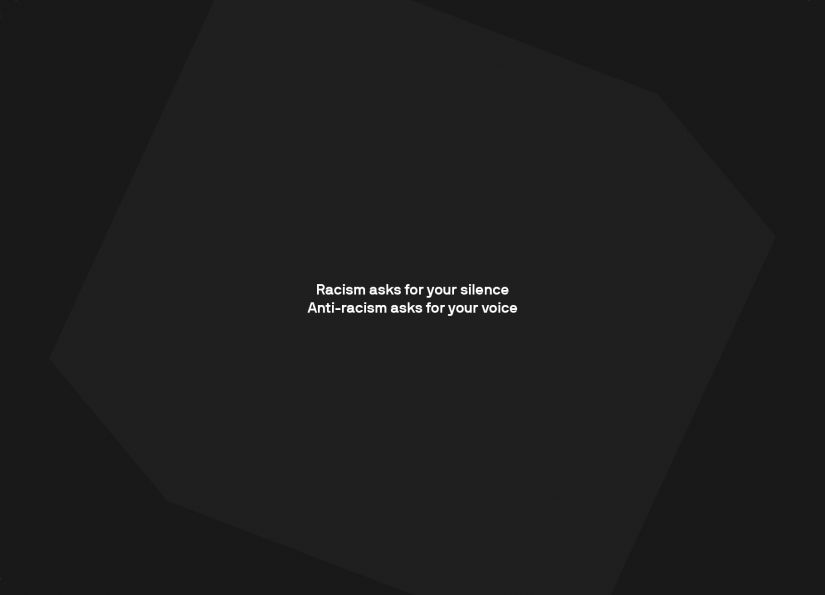UTS condemns racism, and racist behaviour. We expect our staff, students and all members of our community to meet standards of conduct that promote a culture of safety, respect and inclusivity.
But it’s clear that racism exists in Australian institutions.

Doing nothing creates a world where racism thrives. All forms of racism, whether overt or subtle, demand action.
We need to shift the paradigm. When it comes to tackling racism, being proactively anti-racist is a must. Silence is not an option. Neutrality is not an option.
Positively intervening in a situation where racism is witnessed is often referred to as being an active and ethical bystander.
A bystander is simply; in this case, someone who is present; an onlooker or spectator. The difference between simply being a bystander and an active and ethical bystander, is whether you choose to take action.
In the current climate, with the prominence of the Black Lives Matter movement, and prejudice arising from the COVID-19 pandemic, many individuals are asking ‘how can I help?’ This is one way how: Active and ethical bystanders are valuable, important allies in combating racist behaviour, attitudes and systems. But you don’t become one by talking or tweeting about it. It requires you to self-educate, and it requires your action.
Why is it so important? Because by stepping in when they witness racism, active and ethical bystanders play a pivotal role in helping prevent racism from occurring in the first place, and supporting people who’ve experienced it in cases where the act has already occurred. It also contributes to social norms that make racist behavior unacceptable.
Doing nothing is easy. Doing something is right.
It’s our collective responsibility to call it out.
How to be an active and ethical bystander
Three actions you can take if you witness racism on campus. (Of course you should only take action if it is safe to do so, and never put your own or others’ safety at risk).
Intervene
-
Interrupt, confront or disagree with the perpetrator. State to the perpetrator that you find the behavior upsetting.
-
Call the behaviour out as racism or discrimination.
-
Seek the help of friends, passers-by, other members of the UTS community
But we all know, often it’s difficult to find the words to know how to respond on the spot. So here are some ideas:
-
“Hold on I need to process what you just said.”
-
“Help me understand your thinking.”
-
“I didn’t realise you think that.”
-
“What you just said is harmful.”
-
“We don’t say things like that here.”
-
“I’m not comfortable with that.”
-
“I find that offensive.”
-
“That’s not funny.”
-
“That’s not okay with me.”
In most cases it is better to call out the behaviour and highlight it as inappropriate rather than personally attacking the person doing it.
Provide support
-
Comfort the person or group targeted. Offer your support. Go and sit or stand next to them, ask them if they’re okay, and let them know they have an ally.
Report it
-
For immediate, on-the-spot support, or if you or someone else is in danger, contact UTS Security
-
Report the incident to a UTS staff member such as a lecturer or tutor or to a manager or senior staff leader
-
To make a complaint contact the UTS Centre for Social Justice and Inclusion (staff and students) or Student Complaints (students only)
The actions you decide to take will depend on the situation and whether you consider it safe and constructive. Bystander action doesn’t have to be confrontational, and we hope that the steps above will help you in stepping in when witnessing racism.
It isn’t always going to be comfortable, but it is necessary.
We can do better. Join us. Call it out.
One in three people experience racism in the workplace in Australia. Likewise, one third of NSW and Victorian government school students who were born overseas or with at least one parent born overseas, have experienced racism.

